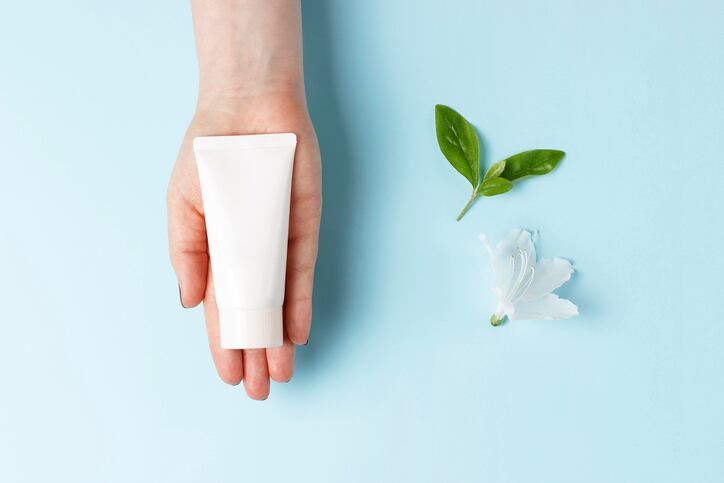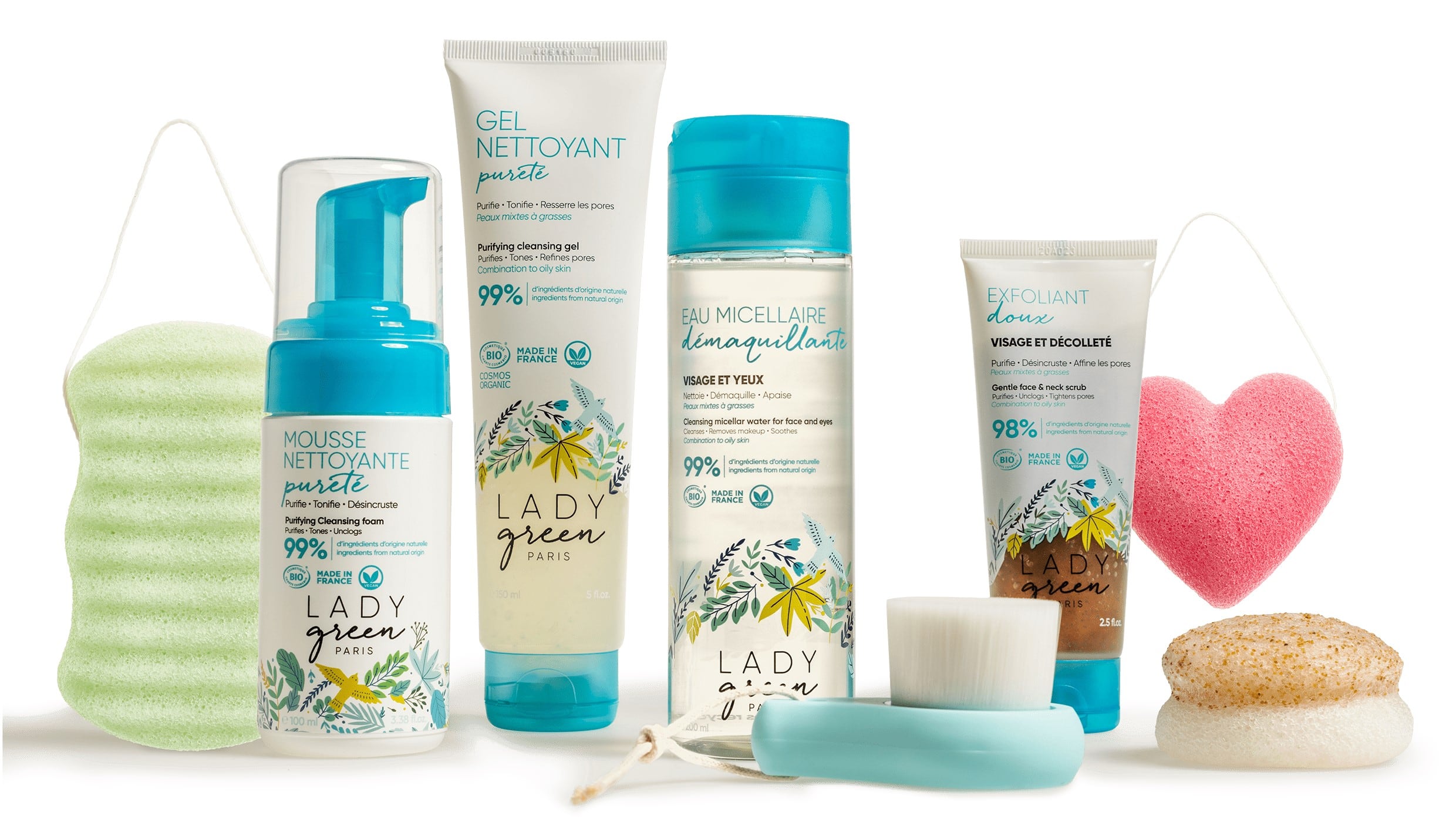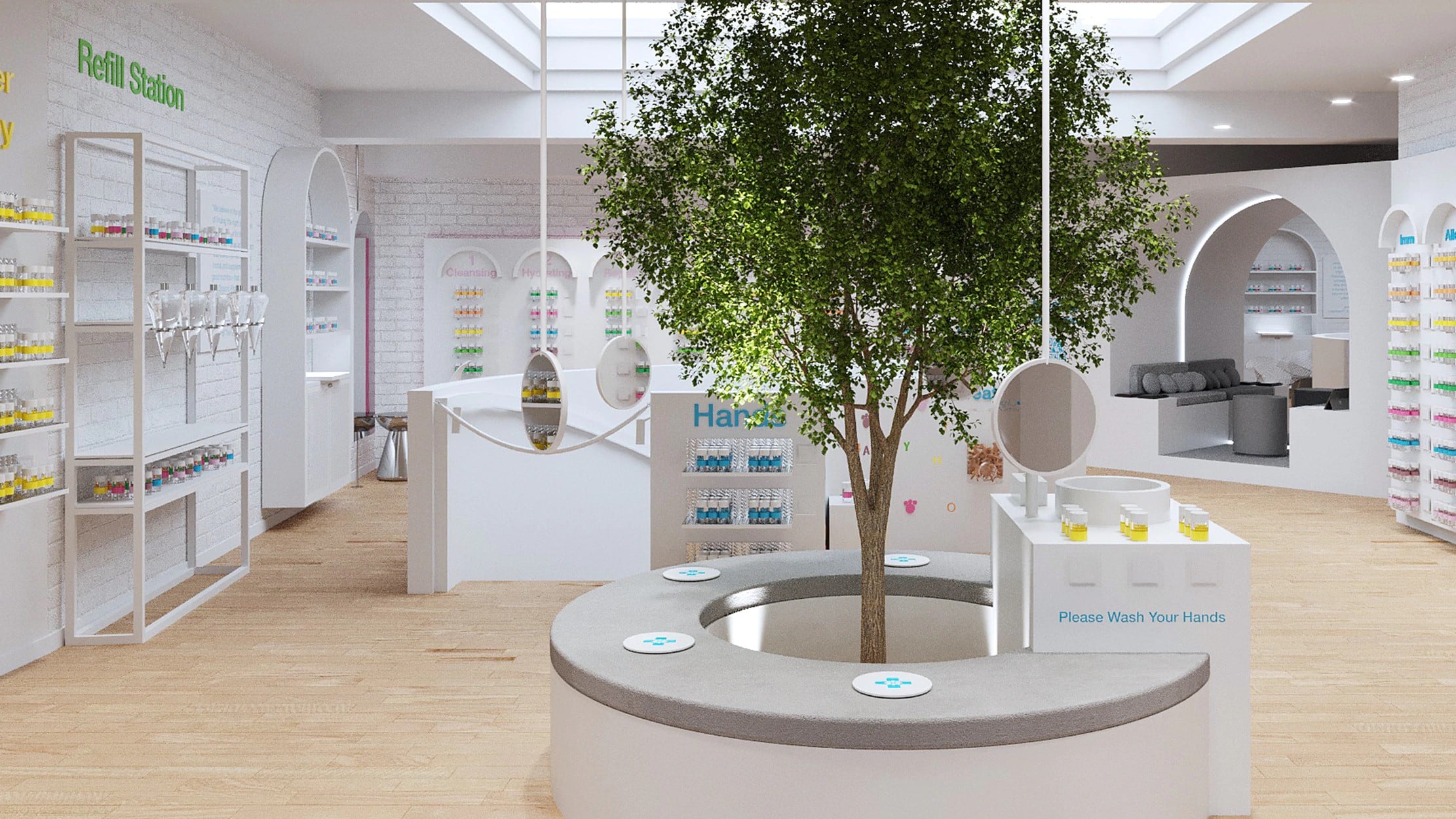Natrue’s consumer survey conducted in January and February this year among just over 2,000 consumers in Germany and France – 70% female, 30% male all aged between 18 and 65 years old – aimed to evaluate consumer attitudes on ‘naturalness’ in the beauty market; get a sense of brand perception and the risk of greenwashing; and better understand the performance of cosmetic certification seals and logos. Around 30 beauty brands were reviewed in the survey, including those considered conventional, those with ‘nature-inspired’ ranges and those carrying certified natural/organic products.
Naturalness and skin compatibility most important to beauty consumers
Findings showed naturalness to be the most important aspect for consumers when considering the purchase of beauty products. For German consumers, naturalness accounted for 20% of the decision-making process and for French consumers it was 24%. This was closely followed by skin compatibility, with both German and French consumers placing 19% importance on this aspect.
Performance, application, convenience and appearance all ranked lower, with value for money considered least important with just 8% of the decision-making process for consumers in both countries.
But what did ‘naturalness’ mean to these beauty consumers?
‘More complex’ concept in recent years – 100% natural ingredients, animal welfare rank highest
The survey asked consumers to rank what statement was most important when considering naturalness from a list of 18 options across six aspects: natural/organic ingredients, ‘free from’ claims, sustainability (biodegradability/environmental impact), fair trade, packaging/waste and animal welfare.
In France, consumers highlighted ‘be 100% natural’ as the most important, followed by ‘protect animal welfare’ and ‘contain no ingredients from animal origin’. In Germany, consumers highlighted ‘protect animal welfare’ as the most important, followed by ‘not contain microplastics’ and ‘be 100% natural’.
Natrue said: “Naturalness is a multifactorial concept highly influenced by personal preference. This concept has become more complex in recent years due to market fragmentation and the appearance of multiple logos and seals highlighting USPs [Unique Selling Points].”
Many consumers, for example, were still looking for products that guaranteed animal welfare and the absence of animal testing despite the existence of the EU regulation banning animal testing of cosmetic products since 2004 and of cosmetic ingredients since 2009, it said.
A greenwashing threat? Natural vs. nature-inspired vs. conventional beauty brands
Among those consumers surveyed, 37% in Germany and 27% in France said they had used a natural/organic cosmetic in the last six months. However, most continued to purchase conventional and nature-inspired beauty brands despite over 90% expressing interest in natural/organic products. Nature-inspired beauty purchases were particularly high in France, at 66% versus 38% in Germany.
Natrue said the survey highlighted that in France, nature-inspired brands were “almost as positively perceived as natural brands”, particularly for aspects like fair trade and animal protection, and were more positively rated than conventional brands. In Germany, however, this was not the case as consumers perceived nature-inspired brands on a par instead with conventional brands.
Natrue said these findings indicated “the threat of greenwashing seems to be greater in France than in Germany, as the lines between nature-inspired and truly natural/organic cosmetics are more blurred for consumers”.
“…Consumers willing to buy natural/organic cosmetics risk being misled by marketing ploys from nature-inspired products,” Natrue said.
So, what about certifications – were these helpful?
Consumers ‘increasingly confused’ about variety of claims, logos and seals
Within the topic of naturalness in beauty, consumers in Germany and France both positively associated the Fairtrade label and Leaping Bunny, Cruelty Free and Vegan with fair trade and animal welfare. But for topics like natural/organic ingredients, climate/biodegradable and biodiversity, things were less clear for consumers, the survey showed.
Multifactorial certifications covering aspects related to the origin, formulation and final product, like Natrue, had a “more diffused picture” in the topic of naturalness, “which indicated that participants have experienced difficulties when assigning a clear purpose to these seals”, the certifier said.
“…In both European markets, consumers find it easier to understand seals linked to a single product guarantee, for instance ‘fair trade’ or ‘vegan’, in comparison to multifactorial certification seals involving more complex messaging, such as ‘natural’, ‘biodegradable’ and ‘free from’ guarantees.”
Despite this, over half of consumers relied on certifications for natural beauty products – using them as a tool to “distinguish authentically natural beauty products”.
“…On-pack certification seals can help consumers steer through the greenwash and have more confidence at point of sale that they are buying a genuinely natural or organic beauty product that meets their expectations and demands,” said Natrue.




